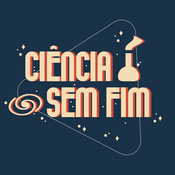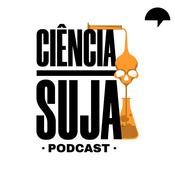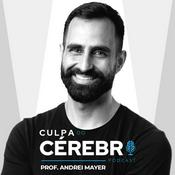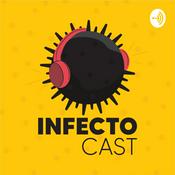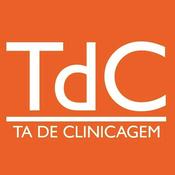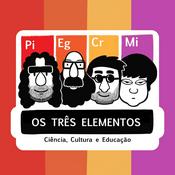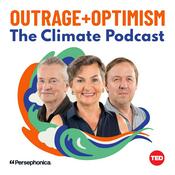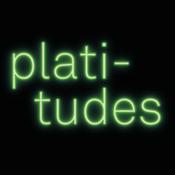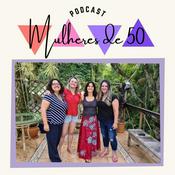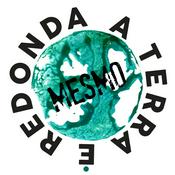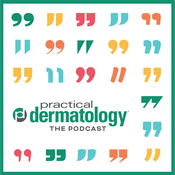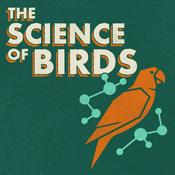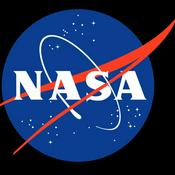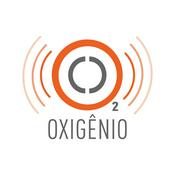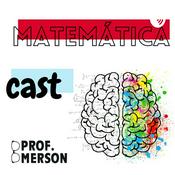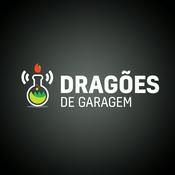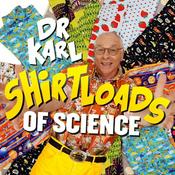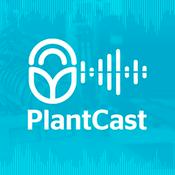33 episódios
- What do vineyards, airborne spores, and digital PCR have in common? Turns out – quite a lot. This episode kicks off Season 4 by going green with plant pathology and molecular diagnostics.
Lexi Heger, a PhD candidate in plant pathology and molecular plant sciences at Michigan State University, joins the show to discuss her work on grapevine diseases, particularly downy mildew caused by Plasmopara viticola. Lexi explains how she developed qPCR assays to differentiate cryptic pathogen clades, redesigned multiplex assays to track multiple grape pathogens simultaneously, and explored how digital PCR can add value when sensitivity really matters, like when detecting rare alleles linked to fungicide resistance. The conversation dives into real-world challenges like sampling air, plant, and soil environments, managing PCR inhibitors, and translating academic research into actionable tools for growers. Together, Jordan, Lisa, and Lexi highlight why qPCR and dPCR aren’t competing technologies, but complementary tools that support smarter disease management in agriculture.
In Career Corner, Lexi reflects on her lifelong love of plants, the joy of gardening, and the mentors who helped cultivate her scientific curiosity. From killing plants “to save them,” to embracing plant puns and favorite pathogens, this segment is a reminder that great science often grows from genuine passion, and a little dirt under your fingernails.
Visit the Absolute Gene-ius page to learn more about the guests, the hosts, and the science we explore. Discover the Applied Biosystems QuantStudio Digital and Real-Time PCR Systems powering real-world research across neuroscience, oncology, agriculture, and more. - We’re back and better than ever. Season 4 of Absolute Gene-ius is officially here, and this teaser gives you a front-row seat to what’s coming. From scientific puns to sneak peeks of the upcoming guest lineup, co-hosts Jordan Ruggieri and new addition Lisa Crawford set the tone for another season of engaging, educational, and entertaining molecular biology content.
This season, the show expands its scope beyond digital PCR to include real-time PCR and other tools that are working together to move research forward in fields like oncology, agriculture, behavioral psychiatry, and more. Lisa brings a non-scientist’s view to the show along with a deep passion for translating complex science into compelling stories. Whether it’s microvesicles, stem cells, or high-containment biosafety labs, the upcoming episodes promise to be both technically informative and very human.
And in classic Absolute Gene-ius fashion, we keep it fun. From how guests got into science, to what thy love most about it, and lab fail stories, the Career Corner returns with fresh energy and laughs. Expect bad puns, big discoveries, and the beautiful chaos of real-world research.
Visit the Absolute Gene-ius page to learn more about the guests, the hosts, and the science we explore. Discover the Applied Biosystems QuantStudio Digital and Real-Time PCR Systems powering real-world research across neuroscience, oncology, agriculture, and more. - HIV, superbugs, and standards—oh my! In this episode of Absolute Gene-ius, we explore the frontier of infectious disease research with Dr. Jesús Mingorance, researcher at Hospital Universitario La Paz in Madrid. His research is translational and uses digital PCR, qPCR, sequencing, and more.
Dr. Mingorance walks us through his application of ultra-sensitive PCR methods to track HIV-2 viral loads—particularly in challenging cases where standard assays fall short. He shares how digital PCR enabled detection in samples where conventional tests failed, and how it's becoming essential for assay calibration and microbial quantification. He also dives into the endemic challenges of carbapenem-resistant Klebsiella pneumoniae in hospitals, revealing the clinical and epidemiological importance of quantifying pathogen load within the microbiome.
In the career corner, Dr. Mingorance recounts his unconventional journey—from humanities student to biologist inspired by a single sentence about DNA. With humor and honesty, he reflects on the patience needed in science, the value of good questions, and the importance of mentoring new scientists. “Biology is beautiful,” he reminds us. We agree.
Visit the Absolute Gene-ius pageto learn more about the guests, the hosts, and the Applied Biosystems QuantStudio Absolute Q Digital PCR System.
Visit the Absolute Gene-ius page to learn more about the guests, the hosts, and the science we explore. Discover the Applied Biosystems QuantStudio Digital and Real-Time PCR Systems powering real-world research across neuroscience, oncology, agriculture, and more. - Can you detect Alzheimer’s with a spit sample? That’s the question driving Arianna Arbona’s exciting research at Universidad Pablo de Olavide in Sevilla, Spain. In this episode of Absolute Gene-ius, she shares how she’s isolating microvesicles from saliva and blood to identify early biomarkers for neurodegenerative diseases like Alzheimer’s—an effort that could one day lead to minimally invasive diagnostic tools.
Arianna describes the scientific and technical hurdles she’s overcoming, from low vesicle concentrations to validating the brain-specific origin of those vesicles. She also reflects on her previous lupus research, where digital PCR enabled detection of faint mRNA signatures that qPCR missed—making it an essential tool for rare target quantification. Her future plans include integrating immuno-PCR and multiplex assays for more sensitive and multi-marker detection in Alzheimer’s and beyond.
In the career corner, Arianna recounts her journey from the Canary Islands to Helsinki to Sevilla, balancing passion, mentorship, and a healthy sense of humor. She talks about working through uncertainty after her master’s degree, the mentors who kept her smiling, and how an early accidents taught her resilience. Her message to aspiring scientists: follow your curiosity and don’t be afraid to change direction.
Visit the Absolute Gene-ius pageto learn more about the guests, the hosts, and the Applied Biosystems QuantStudio Absolute Q Digital PCR System.
Visit the Absolute Gene-ius page to learn more about the guests, the hosts, and the science we explore. Discover the Applied Biosystems QuantStudio Digital and Real-Time PCR Systems powering real-world research across neuroscience, oncology, agriculture, and more. - This episode of Absolute Gene-ius slithers into the surprising science of invasive species monitoring with Dr. Brian Bahder. A childhood love of bugs led Brian to a dynamic career in entomology and plant pathology—and eventually to tracking large reptiles in the swamps of Florida.
We dive deep into Brian’s work developing multiplex digital PCR assays to detect DNA from snakes, caimans, and other invasive species using environmental samples like soil and water. He explains how this technology enables detection even after the animals are gone, and how sampling strategy, environmental variables, and experimental design are critical to getting reliable data. He also compares qPCR and digital PCR, emphasizing how each has its place depending on sensitivity, speed, and sample complexity.
In the career corner, Brian shares how his academic journey was shaped by travel, risk-taking, and a healthy dose of failure. From surfing and skateboarding to discovering new species and running a diagnostic clinic, his path reminds us that science thrives on curiosity—and that even mistakenly detecting your own DNA can teach you something.
Visit the Absolute Gene-ius pageto learn more about the guests, the hosts, and the Applied Biosystems QuantStudio Absolute Q Digital PCR System.
Visit the Absolute Gene-ius page to learn more about the guests, the hosts, and the science we explore. Discover the Applied Biosystems QuantStudio Digital and Real-Time PCR Systems powering real-world research across neuroscience, oncology, agriculture, and more.
Mais podcasts de Ciência
Podcasts em tendência em Ciência
Sobre Absolute Gene-ius
Inspiring stories and advice from dPCR gene-iuses.
Site de podcastOuça Absolute Gene-ius, Hidden Brain e muitos outros podcasts de todo o mundo com o aplicativo o radio.net
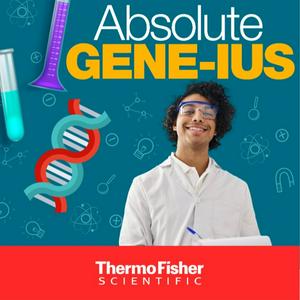
Obtenha o aplicativo gratuito radio.net
- Guardar rádios e podcasts favoritos
- Transmissão via Wi-Fi ou Bluetooth
- Carplay & Android Audo compatìvel
- E ainda mais funções
Obtenha o aplicativo gratuito radio.net
- Guardar rádios e podcasts favoritos
- Transmissão via Wi-Fi ou Bluetooth
- Carplay & Android Audo compatìvel
- E ainda mais funções


Absolute Gene-ius
Leia o código,
baixe o aplicativo,
ouça.
baixe o aplicativo,
ouça.


